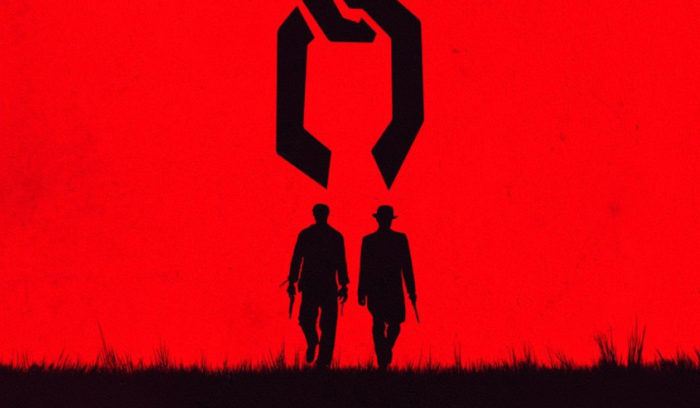

As much as I’ve been a fan of writer/director Quentin Tarantino throughout the years, it’s always been apparent to me that the violence in his films has always been my least favorite thing about his work. His latest film Django Unchained, sees him turning the subject of slavery in to a bloody revenge fantasy much in the same way that he did with the Holocaust and World War II with Inglourious Basterds. However, with Basterds there was a superb amount of craft that went into the writing and staging of each scene that I found thrilling. Django, on the other hand just feels like an unrelentingly violent piece of pulp sensationalism, which though entertaining, just felt a little to mired in it’s own bloodlust for me to really grab on to anything really interesting except for the sheer brutality of the violence. Which again, is not the reason I go to Tarantino’s films, or really anyone’s films for that matter.
Django Unchained begins two years before the Civil War, as we see the film’s title character, the enslaved Django (Jamie Foxx) being freed by a resourceful bounty hunter, Dr. King Schultz (Christoph Waltz). Schultz ends up teaching Django the ways of the bounty hunter as they travel across the American South, tracking down and killing criminals, as bounty hunters tend to do. Eventually this leads them to Candyland, a Mississippi Plantation owned by the ornery Calvin Candie (Leo DiCaprio) who is in possession of Django’s wife. King and Django intend on buying back Django’s wife peacefully, but the lack of humanity and sense of entitlement on Candie’s part becomes too much for the two men to handle.
I suppose if there’s anything that this film does more vividly than any other, it’s the way in which it presents slavery as a brutal, inhumane atrocity that our country probably will never be able to truly wash it’s hands of. And whether it’s a completely faithful depiction of slavery is probably beside the point, since this is a film that’s really interested in using historical knowledge to cause a visceral reaction rather than be an insightful document of troubled times. There’s always this sense of Django Unchained being in many ways a trashy b-movie, with it’s 70’s inspired camera work and equally 70’s inspired soundtrack. But ultimately the film’s mix of historical realities and a gleeful pension for letting bullets and bodies fly through the air so casually, just felt a bit off to me and left me a bit cold.
Most of all, Django is a film that truly displays Tarantio’s strengths as provocateur, and throughout the film he seems to be provoking this almost tangible tension that plays out between DiCaprio in opposition of Waltz and Foxx’s characters. I will say that DiCaprio gives an enormously charismatic performance, that while big and brash at times, also leaves room for some nuance as well. Waltz on the other hand, gives another meticulous performance that I think stands alongside his memorable turn in Inglourious Basterds, only this time we get to root for the guy, since he often serves as the film’s moral backbone.
Besides the film’s have your cake and eat it too mentallity, another thing that bothered me was the length of this film. I know Tarantino’s kind of made it his thing to craft these long sprawling epics, but Django‘s plot for me didn’t quite warrant a 165 minute running time. Movies like Pulp Fiction and Inglourious Basterds are filled with so many characters and are told with such imaginative narrative styles, that in my mind they earn their lengthy running times. Django on the other hand is told in a pretty straight-forward style and there’s really only a few important characters at the heart of this thing, so by the time we get to the third climactic shoot-out, I had kind of lost interest in seeing another racist hillbilly get his head blown off.
It’s weird, when I first started writing this review I was pretty set on giving it the rating I’m giving it now, but as I delved in to the things that make the film such a lightning rod, I keep thinking maybe I’m being a little too dismissive of Django Unchained. Either way, I can’t get away from the fact that this film is too long, too indulgent in its depictions of violence, and kind of feels like it’s exploiting its subject. And for that I can’t entirely get behind Mr. Tarantino’s latest endeavor.









